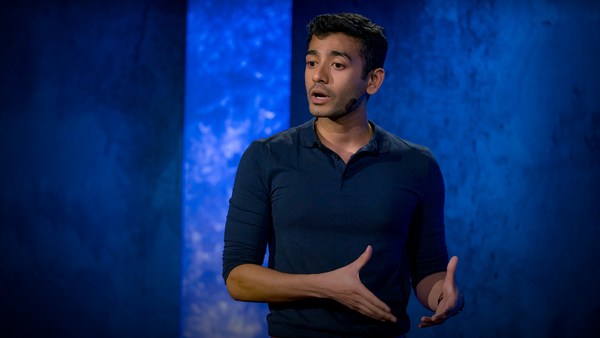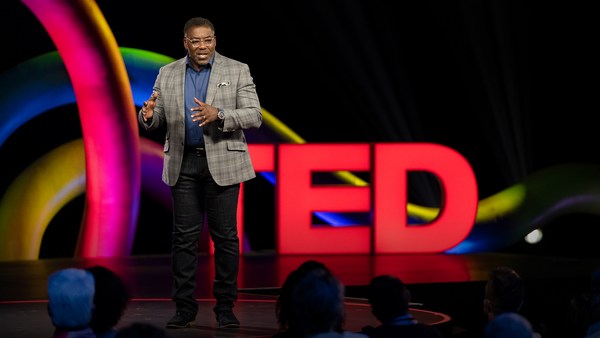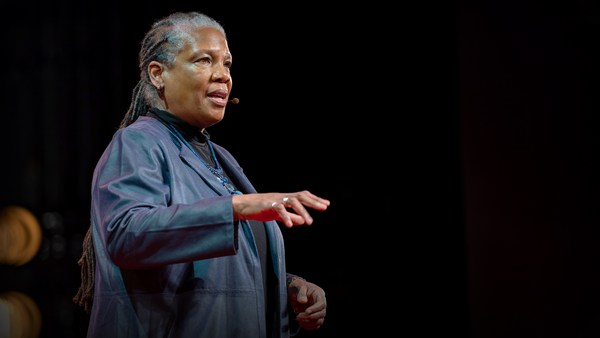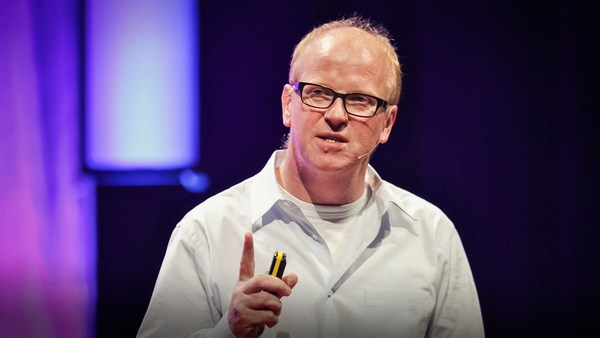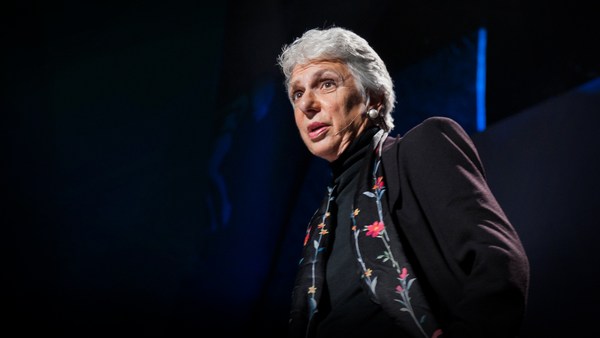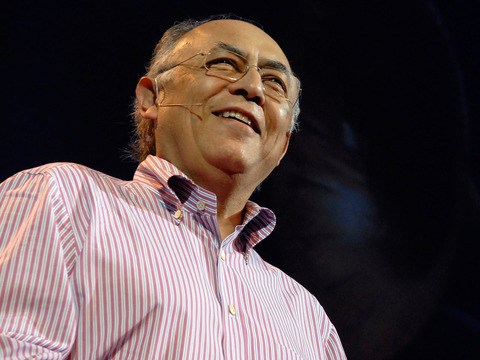I'm a Latinx son of immigrants from a small Texas border town. Growing up, I didn’t have access to classical music, and I had never been to the symphony. But I always knew that I wanted to play a string instrument. So in sixth grade, we got the opportunity to pick our instruments for orchestra class. I took one look at the viola and said, "Great, that'll work."
And as I began to play the instrument, I immediately fell in love with it. Even though my middle school orchestra director was a fabulous bass teacher, she could only teach me so much on the viola. And because there weren't any viola teachers in my town, to be able to play the things that I heard in my head, I turned to a teacher who seemed to know everything: YouTube.
(Laughter)
By watching countless hours of YouTube videos of the great virtuosos performing everything from Beethoven to the musical suite from "Star Wars," I tried to mimic their techniques and incorporate them into my own playing. With a few difficult years of practice, a lot of blood, sweat and tears and the endless support of an entire community of people who really, really wanted me to succeed, I began to play in places that I'd never even dreamed of, like Carnegie Hall, and bring my music to audiences across four different continents. It had been one of the most difficult learning experiences of my life, but one that proved an important point: anyone from anywhere can do incredible things, if you connect them with the knowledge and resources that they need to thrive.
On my travels, I became friends with the elite young musicians who seemed to have all the resources. Because they lived next to musical capitals like New York, Chicago or LA, they studied at places like Juilliard on the weekends. They watched their teachers perform at major symphony orchestras. They had access to almost every musical opportunity that you can imagine right in their home communities. And even though I was proud of the hard work that I'd done to get to their level, I hated always feeling behind because I never had access to private lessons.
So you can imagine how excited I was when I had the opportunity to take my first professional private lesson with one of the best violists in the world. I just knew he'd be so excited about how much progress I'd made on my own and encourage me to become a professional musician. So it came as such a surprise when he told me to quit.
(Laughter)
He said kids like me who didn't start playing at an early age, who didn't have access to private teachers and the best resources, who didn't really understand how the classical music industry really operated, generally could not make it as professional musicians.
Now, classical music is incredibly competitive and sometimes people with all the resources don't even make it. So I'm sure he thought he was doing me a favor, and maybe he was, but I was shocked. It hurt. But I didn’t want to disrespect him, so I smiled, said, “OK,” and left. I was a 15-year-old who loved playing the viola more than anything, but in that moment I seriously considered putting my instrument away forever.
Now I'm 21 years old and I couldn't be more grateful to have experienced that moment of discouragement because it opened my eyes to the fact that for 13 million children in the United States who live outside of major US cities, pursuing a career in something like classical music, ballet, art, research or many other historically exclusive fields is incredibly more difficult, if not practically impossible. In classical music, for example, people of color make up only around 15 percent of America’s orchestras, despite representing almost 42 percent of the US population. So in some ways, I don't blame the viola teacher for telling me to quit. Music opportunities tend to cluster around major cities, especially the charities and nonprofits that try to help underserved students. And I just wasn't around them.
But people have talent everywhere, and everybody deserves a chance to grow that talent and share it with the world. Because when we allow people like me to systemically be prevented from entering into these competitive fields, we uphold the elitist and exclusionary systems that allow so many children to be told that they're not worthy enough to pursue their dreams.
I wanted to change that. For many years, I had no clue how. But when the COVID pandemic hit and our entire world went virtual, I saw an opportunity to help others learn music online, regardless of who they were, where they lived, or what they could afford. So I texted a few friends I knew from around the country and put together a founding team. Together we reached out to 20 other musicians that we knew and asked each of them to teach a free virtual private lesson a week to an underserved young student.
This meant that students like Samuel Igbo, a 14-year-old violinist from a small town in Texas who dreams of pursuing a career as a concert violinist, could receive personalized musical mentorship from Nikki Naghavi, a prize-winning violinist at the New England Conservatory. My idea inspired and connected hundreds of people from all walks of life to offer their time and expertise to aspiring musicians like Sam from around the country.
And now, just two and a half years later, this little idea has turned into Through the Staff, a national nonprofit that has provided almost 600,000 dollars of free virtual private lessons to almost 1000 young musicians from Fresno, California to Wilkesboro, North Carolina.
I didn't realize it, but I'd accidentally started a virtual nonprofit. We didn’t just use the internet to deliver our services, our organization existed on the internet. Because our program was run entirely by volunteers from around the country who work together for a common cause, despite never meeting once in person. Because our students and teachers could learn from each other online, wherever they were, geographic boundaries no longer mattered. This digital workspace meant virtually no startup or scaling costs. So we've been able to grow and make incredible changes with a budget of only 9,000 dollars over two and a half years.
It was only after I began to see this profound potential for impact that I realized that virtual organizations can help us better distribute educational resources directly to those who would benefit from them the most. And if this worked in classical music, I figured it can work in other places, too. This time in academic research.
When I began to explore biological research in my second year of college, I remember trying to find a mentor and being discouraged to only see white male researchers. Just like in music, this trend is systemic. Only 15 percent of all doctoral researchers were Native American, African-American or Hispanic. I wanted to change that. And I knew that the virtual nonprofit model that I had already developed could make a difference here, too. I could start something that could help generations of future young researchers break into academia.
So in 2021, my best friend and I gathered a founding team of 31 college students and started another virtual nonprofit called the Pre-College Research Institute. Together, we've created four 32-hour virtual research courses that have taught, trained and inspired 160 high school students of color from Klerksdorp, South Africa to New Delhi, India, to Alpharetta, Georgia.
If I could break down barriers in access to music and academic research, anyone can do it anywhere. That's exactly what makes virtual nonprofits so powerful. They transcend geographic boundaries and bring opportunities to those who would literally never otherwise have them. They're a new way to find and connect the world to a huge source of untapped talent and a necessary step to nurturing the future of these industries. This is the future that will not only change the fabric of these institutions, but ensure they survive and prosper for years to come. And as more and more children are connected to the opportunities and knowledge and resources that they need to chase their dreams, I'm excited to see the people that lead every industry look a lot more like the world around them.
I know this transformation can happen, but I can't do it alone. So if you have an idea or interest for how to make a historically inaccessible field more equitable, grab a few friends, brainstorm a way that you can break down the barriers in your field and start a virtual nonprofit. You may never meet the majority of the people that you serve, but the effects of your hard work will touch them in ways that they will never forget.
Thank you.
(Applause)
